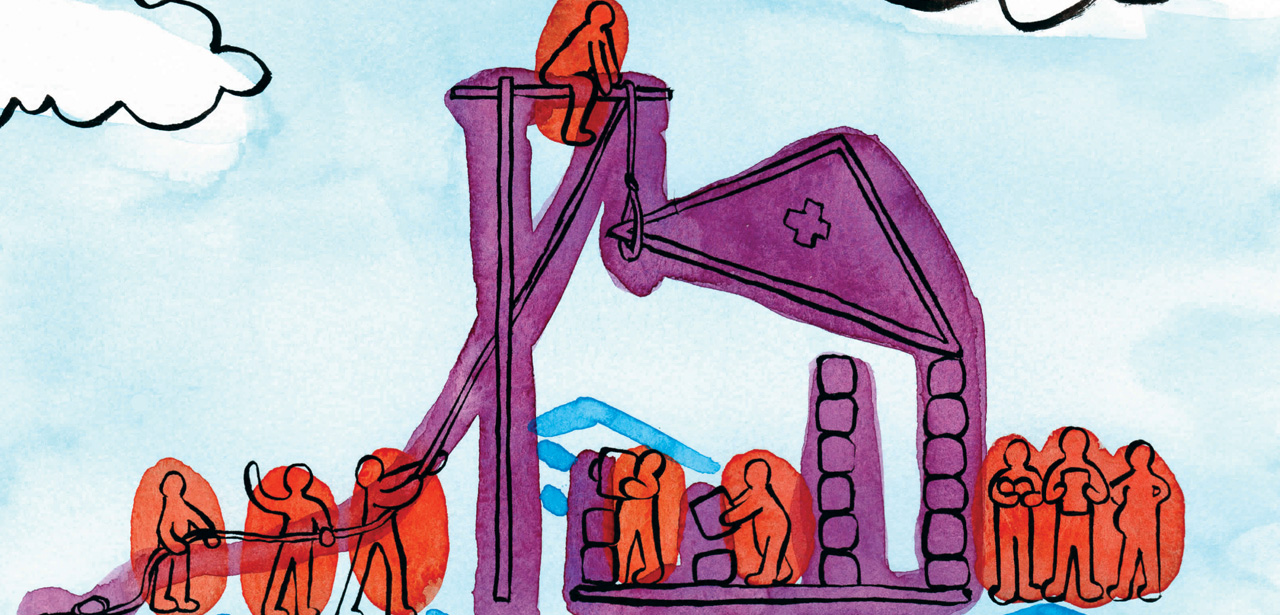Chikungunya is an arboviral disease causing arthralgia which may develop into a debilitating chronic arthritis. In Mayotte, a French overseas department in the Indian Ocean, a chikungunya outbreak was reported in 2006, affecting a third of the population. We aimed at assessing the chikungunya seroprevalence in this population, after over a decade from that epidemic. A multi-stage cross sectional household-based study exploring socio-demographic factors, and knowledge and attitude towards mosquito-borne disease prevention was carried out in 2019. Blood samples from participants aged 15-69 years were taken for chikungunya IgG serological testing. We analyzed associations between chikungunya serological status and selected factors using Poisson regression models, and estimated weighted and adjusted prevalence ratios (w/a PR). The weighted seroprevalence of chikungunya was 34.75% (n = 2853). Seropositivity for IgG anti-chikungunya virus was found associated with living in Mamoudzou (w/a PR = 1.49, 95%CI: 1.21-1.83) and North (w/a PR = 1.41, 95%CI: 1.08-1.84) sectors, being born in the Comoros islands (w/a PR = 1.30, 95%CI: 1.03-1.61), being a student or unpaid trainee (w/a PR = 1.35, 95%CI: 1.01-1.81), living in precarious housing (w/a PR = 1.30, 95%CI: 1.02-1.67), accessing water streams for bathing (w/a PR = 1.72, 95%CI: 1.1-2.7) and knowing that malaria is a mosquito-borne disease (w/a PR = 1.42, 95%CI: 1.21-1.83). Seropositivity was found inversely associated with high education level (w/a PR = 0.50, 95%CI: 0.29-0.86) and living in households with access to running water and toilets (w/a PR = 0.64, 95%CI: 0.51-0.80) (n = 1438). Our results indicate a long-lasting immunity from chikungunya exposure. However, the current population seroprevalence is not enough to protect from future outbreaks. Individuals naïve to chikungunya and living in precarious socio-economic conditions are likely to be at high risk of infection in future outbreaks. To prevent and prepare for future chikungunya epidemics, it is essential to address socio-economic inequalities as a priority, and to strengthen chikungunya surveillance in Mayotte.
Auteur : Ortu Giuseppina, Grard Gilda, Parenton Fanny, Ruello Marc, Paty Marie-Claire, Durand Guillaume André, Hassani Youssouf, De Valk Henriette, Noël Harold
PloS one, 2023, vol. 18, n°. 5, p. e0285879


